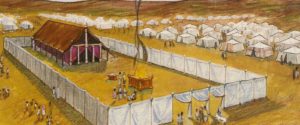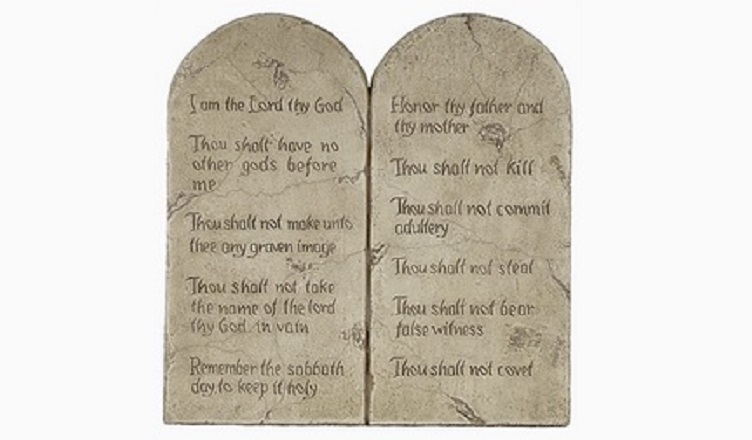From Leviticus 19-21
 In Leviticus many laws are nicely categorised. But today’s passage includes a whole series of seemingly unrelated rules and statutes for Israel to live by. These were simply the implications of what it means to live with a Holy God.
In Leviticus many laws are nicely categorised. But today’s passage includes a whole series of seemingly unrelated rules and statutes for Israel to live by. These were simply the implications of what it means to live with a Holy God.
This post is part of my bible in a year series.
Passage and Comments
Our passage begins with commands prohibiting mixing of cattle, seed and material.
19 “You shall keep my statutes. You shall not let your cattle breed with a different kind. You shall not sow your field with two kinds of seed, nor shall you wear a garment of cloth made of two kinds of material. (Lev 19:19)
Its possible mixtures were considered Holy to the LORD and ought to be given to him (Dt 22.9). Making these distinctions further highlighted the more important distinction between everyday life and the sacred sphere of the tabernacle.
20 “If a man lies sexually with a woman who is a slave, assigned to another man and not yet ransomed or given her freedom, a distinction shall be made. They shall not be put to death, because she was not free;
21 but he shall bring his compensation to the LORD, to the entrance of the tent of meeting, a ram for a guilt offering. 22 And the priest shall make atonement for him with the ram of the guilt offering before the LORD for his sin that he has committed, and he shall be forgiven for the sin that he has committed. (Lev 19:20-22)
‘Assigned’. The command envisions a man having sex with a slave who is ‘assigned’ (‘acquired’ NASB, ‘betrothed’ KJV , ‘promised’ NIV) to another man. Its assumed masters used their slaves for sex on occasion. The sex is not condemned because it is outside marriage, rather because the woman is assigned to another man. This is approaching adultery – a deliberate sin which is punishable by death.
‘Compensation’. In this instance the man has to make a guilt offering before the LORD to compensate for his sin and be forgiven.
23 “When you come into the land and plant any kind of tree for food, then you shall regard its fruit as forbidden. Three years it shall be forbidden to you; it must not be eaten. 24 And in the fourth year all its fruit shall be holy, an offering of praise to the LORD. 25 But in the fifth year you may eat of its fruit, to increase its yield for you: I am the LORD your God. (Lev 19:23-25)
These commands anticipate Israel’s entry into the promised land. When they come in they are to give the land rest by not eating its fruit. For a full three years. Difficult after a lengthy campaign. The fourth year they are to give it all to the LORD. Pragmatically this would help the land regrow, flourish and then as thanks they would give the firstfruits to the LORD.
26 “You shall not eat any flesh with the blood in it. You shall not interpret omens or tell fortunes. 27 You shall not round off the hair on your temples or mar the edges of your beard. 28 You shall not make any cuts on your body for the dead or tattoo yourselves: I am the LORD. (Lev 19:26-28)
The grouping of the commands here suggests they are all related to foreign worship at that time.
29 “Do not profane your daughter by making her a prostitute, lest the land fall into prostitution and the land become full of depravity. 30 You shall keep my Sabbaths and reverence my sanctuary: I am the LORD. 31 “Do not turn to mediums or necromancers; do not seek them out, and so make yourselves unclean by them: I am the LORD your God. (Lev 19:29-31)
The command prohibits forcing family members into prostitution which is probably what the former occupants did.
 The warning against divination again is related to foreign worship and superstition. Associating with these practices makes one unclean. Both commands here are connected by the commands to keep the sabbaths and revere the sanctuary.
The warning against divination again is related to foreign worship and superstition. Associating with these practices makes one unclean. Both commands here are connected by the commands to keep the sabbaths and revere the sanctuary.
The LORD has brought them into the land and resides with them in the sanctuary. If they behave in these ways they make the land and themselves unclean. They cannot remain in the presence of the LORD and show no respect to him for bringing him there in the first place.
32 “You shall stand up before the gray head and honor the face of an old man, and you shall fear your God: I am the LORD. (Lev 19:32)
They are meant to respect their elders. The ancient cultures respected their parents and looked up to their elders. They valued their opinions.
33 “When a stranger sojourns with you in your land, you shall not do him wrong. 34 You shall treat the stranger who sojourns with you as the native among you, and you shall love him as yourself, for you were strangers in the land of Egypt: I am the LORD your God. (Lev 19:33-34)

The basis for this command is their own rescue from Egypt. They were once strangers in the land of Egypt. They were ruled over by others. They were horribly mistreated. Israel is meant to learn from their experiences. Not to replicate bad ones but turn them around for good.
35 “You shall do no wrong in judgment, in measures of length or weight or quantity. 36 You shall have just balances, just weights, a just ephah, and a just hin: I am the LORD your God, who brought you out of the land of Egypt. (Lev 19:35-36)
In the marketplace the people were meant to treat one another honestly. The command is predicated on the LORD’s bringing them out of Egypt. They obey because he saved them.
37 And you shall observe all my statutes and all my rules, and do them: I am the LORD.” (Lev 19:37)
Story of Israel

The Israelite tabernacle and sanctuary was the headquarters of the Holy God. It follows from this, if God’s people were to remain in his presence then they were to be holy wherever they were and in whatever they did.
Our passage reminds us that God’s people were called to be responsible and holy in all parts of life. Whether ‘worldly’ or ‘spiritual’.
Story of Jesus
Jesus likewise calls us to be holy in everyday life. In the Gospel he identifies the greatest commandments and its through these we extend God’s desire that we be holy into everyday life.
36 “Teacher, which is the great commandment in the Law?”
37 And he said to him, “You shall love the Lord your God with all your heart and with all your soul and with all your mind. 38 This is the great and first commandment.
39 And a second is like it: You shall love your neighbor as yourself.
40 On these two commandments depend all the Law and the Prophets.” (Mt 22.36-40)
Copyright © Joshua Washington and thescripturesays, 2015-17. All Rights Reserved.

